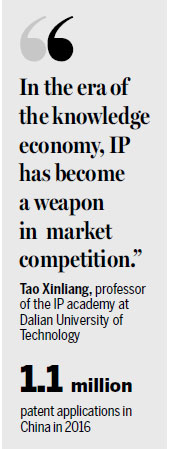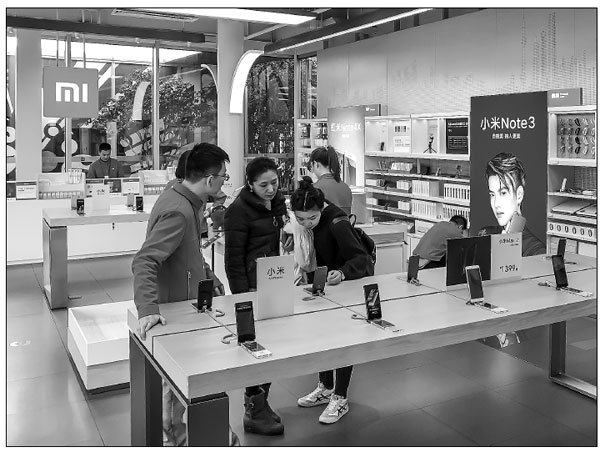Experts: Corporate cost centers can be lucrative
Huawei executive argues that intellectual property does not have to be a burdensome drag, but should generate value
Intellectual property plays a major role in increasing the competitiveness of Chinese companies in global markets, said officials, academics and corporate executives at the recent China Intellectual Property Summit Forum in Beijing.
"In the era of the knowledge economy, IP has become a weapon in market competition," said Tao Xinliang, a professor of the IP academy at Dalian University of Technology.
IP is a topic that inevitably confronts China and Chinese companies, he said.
Song Liuping, vice-president of Huawei Technologies, said that IP should be turned into economic value and revenue in markets. Otherwise it just added costs to the bottom lines of companies, costs which were proving an increasing burden.
In 2016, the number of patent applications in China reached 1.3 million, more than the combined total from the United States, Japan and South Korea. But Song said excessive patent applications were challenging, from the perspective of a globally competitive environment.
He said that IP should acquire economic worth from markets, generating additional value through exclusive premiums, free access to the global market with cross-licensing and direct IP deals.

Song called for new methods to protect the economic value of IP, including adjusting the compensation and protection threshold for IP infringement.
He added that as one of the most essential markets in the world, China has the ability to tackle unfair international pricing practices, and to ensure companies gain more economic value from their IP.
"IP has become a global issue under the globalization of trade and economy," he said. "We should consider it with a global vision."
Zhou Zizhi, senior director of international litigation at Chinese tech giant Xiaomi, said that it is crucial to manage IP positively, particularly when a company is expanding in the global market.
Zhou said Xiaomi not only is one of the leaders in the domestic market, but also has stood out in countries such as India, Russia and Israel.
To date, the company has more than 4,800 patents in China and abroad, with more than 2,000 patents in countries including the United States, Japan, South Korea and main European markets.
"The development of IP can be achieved through independent innovation or cooperation with the outside world," Zhou said.
In addition to internally generated IP, Xiaomi has joined hands with such international groups as Intel and Nokia to access some of their patents.
"The telecommunications industry is a key sector in the IP field, so we actively take part in setting standards," Zhou said.
Chen Hongbing, chief of the World Intellectual Property Organization's China office, said that with the rapid development of the global economy, Chinese enterprises had sped up their pace of moving abroad.
Chen added that in the future, the potential of Chinese companies to expand and grow stronger would mostly depend on their abilities to enhance their global competitiveness by going abroad, integrating with global value chains and effectively utilizing international resources.
liangkaiyan@chinadaily.com.cn
|
Customers try out Xiaomi products at a Mi Home Store in Shanghai.Wang Gang / For China Daily |
(China Daily 12/28/2017 page17)















